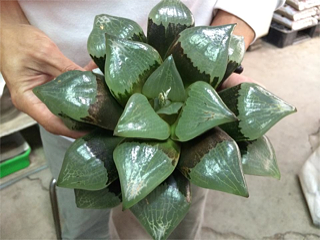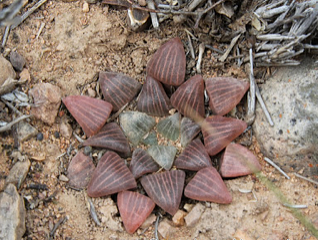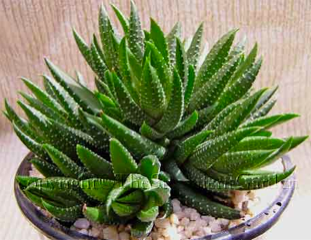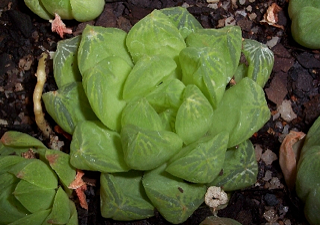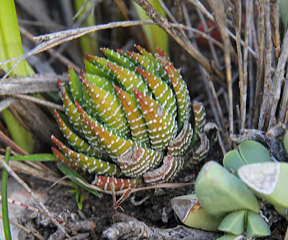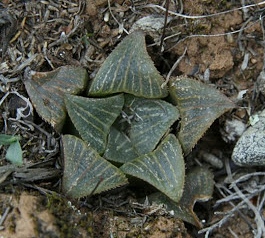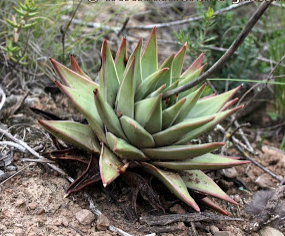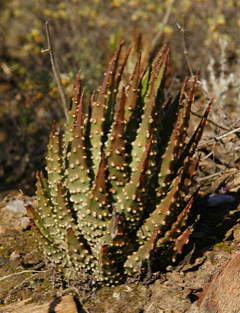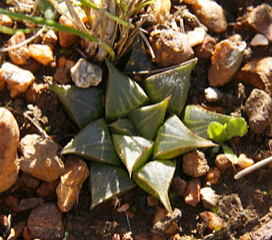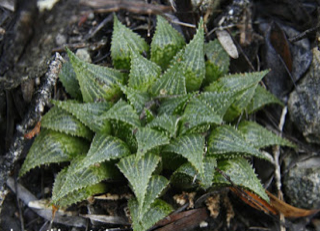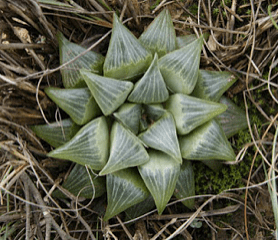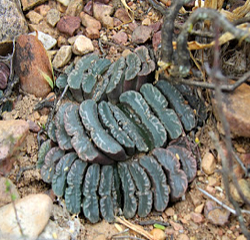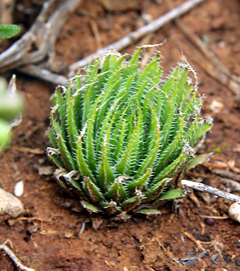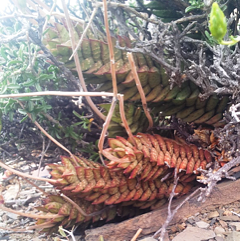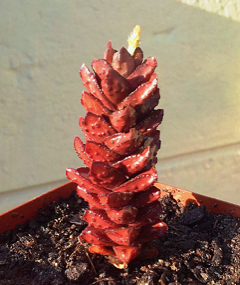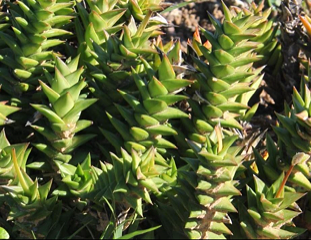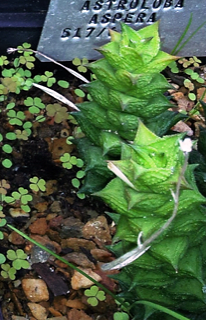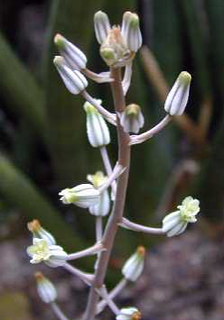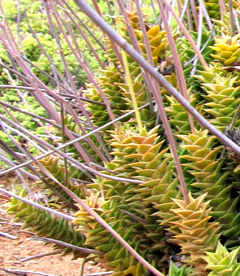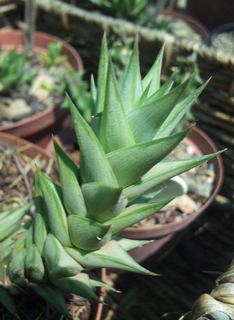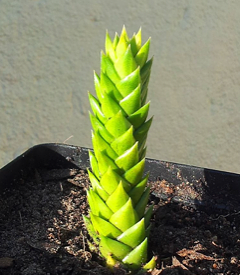Submitted by: Jim Tanner
Haworthia are native to South Africa, and grow in a winter-rainfall, Mediterranean environment not very different from Southern California. Most are easily grown, preferring some shade and growing mostly in the winter and spring. Many will grow year round, if given sufficient water. They are in flower now, and some species will remain in flower into the summer. However, the flowers are small and generally off-white and not particularly notable. Haworthias are grown for their beautiful leaf shapes and colors.
Haworthia in general are tolerant of almost any potting mix, and success has been reported with everything from straight pumice to potting soil-pumice or perlite mixes, to plain potting soil, and even garden soil. They like light fertilization when growing, any balanced fertilizer will do. An application of time release fertilizer in late winter will improve growth from late winter and early spring rains. Healthy Haworthia generally have stiff thick white roots. When repotting, it’s important to inspect the roots for mealy bugs, and for old, dried brown or hollow roots, which are often the source of infection or rot. These should be removed back to healthy tissue.
Astroloba
It should come as no surprise that the genus Astroloba is closely related to Haworthias since they also inhabit South Africa and look similar to the columnar Haworthia, but are separated by the fact that their flower is regular shaped instead to have the characteristic 2-tipped corolla of the Haworthias. There is no evidence that the two genera have natural hybrids.
Cultivation is similar to haworthia, although perhaps slightly drier. Many Astroloba are slow to grow and to offset. They take very little frost, and need a good drainage.
LATIN LOOKUP – Loquerisne Latine (Do you speak Latin)?
The meanings of latin plant names on this page – from http://davesgarden.com/guides/botanary/
- Astroloba [ass-TROH-low-buh]
From the Greek astron (star) and lobos (lobe); refers to the star-spreading lobes of the perigon. - bayeri [BAY-er-ee]
For M. Bruce Bayer, 20th century South African agricultural entomologist, Haworthia specialist, plant collector, gardener, and former curator of the Karoo National Botanic Gardens, Worcester, RSA. - coarctata [koh-ARK-tay-tuh]
Crowded. - congesta [kon-JES-tuh]
Congested, crowded. - corrugata [kor-yoo-GAH-tuh]
Wrinkled. - cymbiformis [sim-BIH-for-miss]
Boat-shaped. - fasciata [fash-ee-AY-tuh, fas-kee-AY-tuh]
Bound together. - foliolosa [foh-lee-oh-LOH-suh]
Having small leaves. - Haworthia [ha-WORTH-ee-a]
Named for Adrian Hardy Haworth, 19th century British botanist. - herrei [HER-ray-eye]
Named for Dr. Hans Herre, 20th century botanist and expert on South African succulents. - magnifica [mag-NIH-fee-kuh]
Magnificent. - marginata [mar-jen-AY-tuh, mar-jeh-NAH-tuh]
Margined. - maxima [MAKS-ih-muh]
Largest. - mirabilis [mih-RAB-ih-liss]
Wonderful. - paradoxa [par-uh-DOKS-uh]
Strange, anomalous. - retusa [re-TOO-suh]
Rounded and notched tip. - spiralis [spir-AH-liss]
Spiralled. - tenuis [TEN-yoo-iss]
Slender, thin. - truncata [trunk-AH-tuh]
Cut off.
